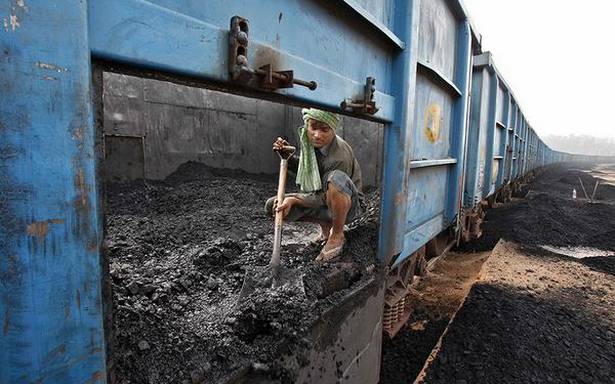Auto, onions, sand help drive numbers
The Railways on Friday said its freight loading for the financial year 2020-21 has already surpassed the levels achieved during the last fiscal, as of March 12, driven by transportation demand from newer sectors such as automobiles, onion, sand and cotton.
In 2020-21, the Railways has till now loaded 1145.68 million tonnes (mt) of freight, marginally higher from 1145.61 mt in the previous year.
‘Emerging from deficit’
Highlighting this as a ‘huge achievement’, particularly amid the disruption to rail services due to the pandemic, Railway Board Chairman Suneet Sharma said, “This gives us a great boost and proves how the Railways has continued to be the driving force of the economy… despite the fact that the coronavirus crisis had pushed us into a deficit of 70 mt from April to July.”
As per the details shared by the Railways, there was a shortfall of about 50 mt in loading of coal, which comprises half of its freight, along with decline in loading of petroleum, oil and lubricants. However, loading of commodities such as foodgrains, iron and steel, cement and clinker, fertilizers and other goods saw good growth.
“The incremental loading of more than 15 mt in other goods [from 78.93 mt to over 94 mt] is indicative of freight basket diversification. For example, in non-traditional commodities, we saw a growth of 64% in automobiles, 36% in fly ash, 57% in stone, 234% in onion, 439% in chemical salt, 274% in sand, 19% in sugar and 266% in cotton… Earlier these items didn’t come to us,” Mr. Sharma said.
With fewer passenger trains operational, Railways was able to almost double the average speed of freight trains to 44 kmph from 23.29 kmph earlier, he said. “A number of concessions/discounts are also being given in Indian Railways to make rail freight movement very attractive.
“The strong emergence of business development units in zones and divisions, constant dialogue with the industry and logistics service providers… are adding to the robust growth of the freight business for the Railways,” he added.
Source: Read Full Article
